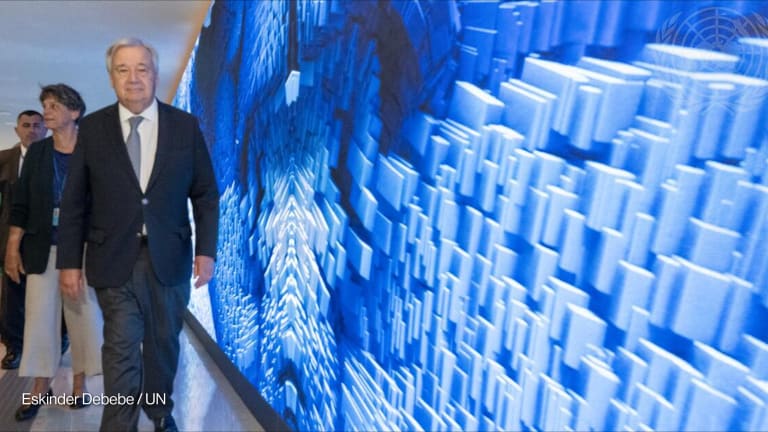The United Nations’ spirit animal for artificial intelligence is a petite humanoid robot named Sophia that swears she can run the world better than any human. “Think of me as a personification of our dreams for the future of AI,” she says in her corporate bio.
Sophia, a creation of Hanson Robotics, is the U.N. Development Programme’s first robot innovation ambassador, a job that places her at the forefront of the U.N. public relations campaign to secure a role for managing a technological revolution that promises — and threatens — to alter the way we make peace and war, end poverty, and deliver aid to the world’s neediest.
Her arrival on the world stage — she has appeared on “The Tonight Show Starring Jimmy Fallon” — comes at a time when the U.N. leadership and key powers are trying to carve out an ambitious role in erecting the world’s digital guardrails and use AI for a range of tasks, from predicting the flight of refugees and conducting real time negotiations with Indigenous communities to regulating the use of autonomous lethal weapons on the battlefield.








